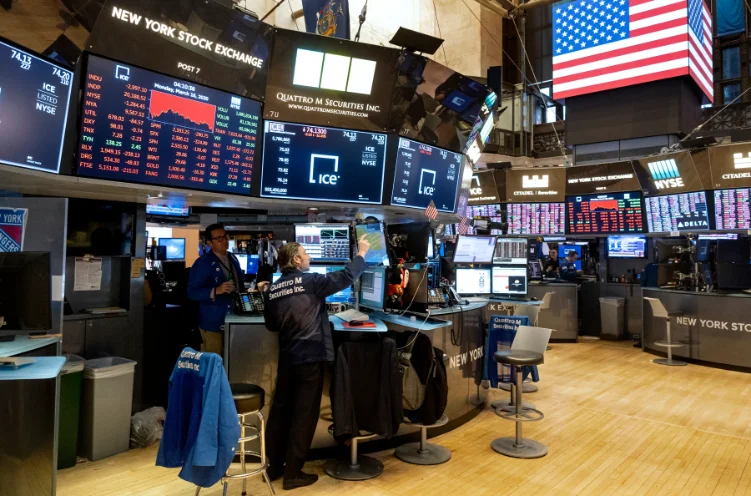Emerging-market stocks have recently experienced a decline, reaching their lowest point since March. This drop is due to several factors, including the strengthening of the US dollar and reduced confidence among US consumers, which has made investors more cautious about taking risks.
One of the main concerns contributing to this decline is the expectation that interest rates in the US will remain high for an extended period, or possibly even increase. This expectation has been affecting the stock market negatively for the past two weeks.
As a result of this flight to safety, the MSCI Inc.’s index, which tracks stocks in developing nations, has fallen by approximately 1%. This marks the second consecutive month of losses for this index. Additionally, a collection of currencies from emerging-market countries has also seen a decline, reaching its lowest level in two weeks. The situation worsened after a report revealed that US consumer confidence has dropped to its lowest point in four months.
Neel Kashkari, the President of the Federal Reserve Bank of Minneapolis, expressed his belief that the US central bank may need to raise interest rates once more before the end of the year, especially if the economy performs better than expected.
“The value of the US dollar continues to rise, and this is mainly due to comments from Federal Reserve members who have emphasized that US interest rates are likely to remain stable for an extended period,” noted analysts at UniCredit in a recent statement.
Hungary’s central bank has taken a more cautious approach to its monetary policy by implementing a fifth consecutive full-percentage point reduction in the one-day deposit facility, bringing it down to 13%. During an online briefing, Deputy Governor Barnabas Virag expressed concerns about persistently high inflation and emphasized the need for policymakers to exercise caution.
This interest rate adjustment was anticipated, even though the Hungarian forint had weakened in recent trading sessions. Additionally, there has been a disagreement between the central bank in Budapest and the government regarding Hungary’s worsening financial situation, inflation expectations, and economic growth prospects.”
“The Hungarian forint initially saw an increase of approximately 0.8% against the US dollar. However, it later gave up these gains and traded about 0.2% weaker,” noted Tatha Ghose, a strategist at Commerzbank. The ongoing disputes among Hungary’s economic leadership are considered unfavorable for the exchange rate, and as Ghose mentioned, “the forint is expected to gradually weaken in the short term.”
Meanwhile, in Brazil, the central bank’s latest minutes have led to an uptick in swap rates and bond yields. These minutes have reinforced the notion that any significant acceleration of the interest rate reduction is unlikely. Brazil recently began an easing cycle, reducing its benchmark interest rate by 50 basis points in both August and September, bringing it down to 12.75%.”
Asian markets faced a downturn when China Evergrande Group, a major property developer, revealed that one of its subsidiaries had failed to make a payment on a yuan bond. This news raised questions about the ability of President Xi Jinping’s government to resolve the ongoing housing crisis.





